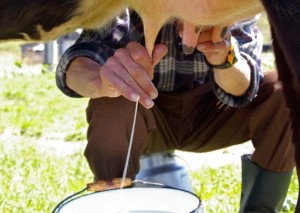Members of a high school football team in Durand, Wisc. were not told the milk provided for a banquet by a parent was unpasteurized, according to a local news report. Dozens of the students who attended the banquet contracted bacterial infections from Campylobacter in the milk.
 Brianna Winnekins, 18, had a 105˚F fever and other symptoms before she was hospitalized Sept. 22 at Chippewa Valley Hospital. Winnekins, a manager of the football team who was hospitalized for four days, said had she known the milk was unpasteurized she would have avoided it.
Brianna Winnekins, 18, had a 105˚F fever and other symptoms before she was hospitalized Sept. 22 at Chippewa Valley Hospital. Winnekins, a manager of the football team who was hospitalized for four days, said had she known the milk was unpasteurized she would have avoided it.
Campylobacter is transmitted when food or beverages contaminated with animal feces are consumed. Thirty eight members of the team contracted campylobacteriosis, at least eight of them were hospitalized. The outbreak forced the cancelation of two football games, prompted 150 high school and middle school students to miss classes to avoid becoming ill and triggered a massive cleaning project at the school.
Lab tests on Campylobacter bacteria found on the farm that supplied the milk identified the DNA ”fingerprint” of the strain and found it to be a genetic match to the strain that sickened team members.
Symptoms of campylobacteriosis include diarrhea, which is sometimes bloody, abdominal cramping, fever, nausea and vomiting. In rare cases, a complication called Guillain-Barré syndrome can develop. Guillain-Barré causes weakness and paralysis and can occur several weeks after the initial illness.
Young people are especially vulnerable to food poisoning because their immune systems are not fully developed. Because raw milk can harbor Campylobacter, E.coli, Listeria and other dangerous pathogens, public health officials recommend that children only consume pasteurized milk.
Laws that govern raw milk vary from state to state. In Wisconsin, it is illegal to sell or distribute raw milk.




